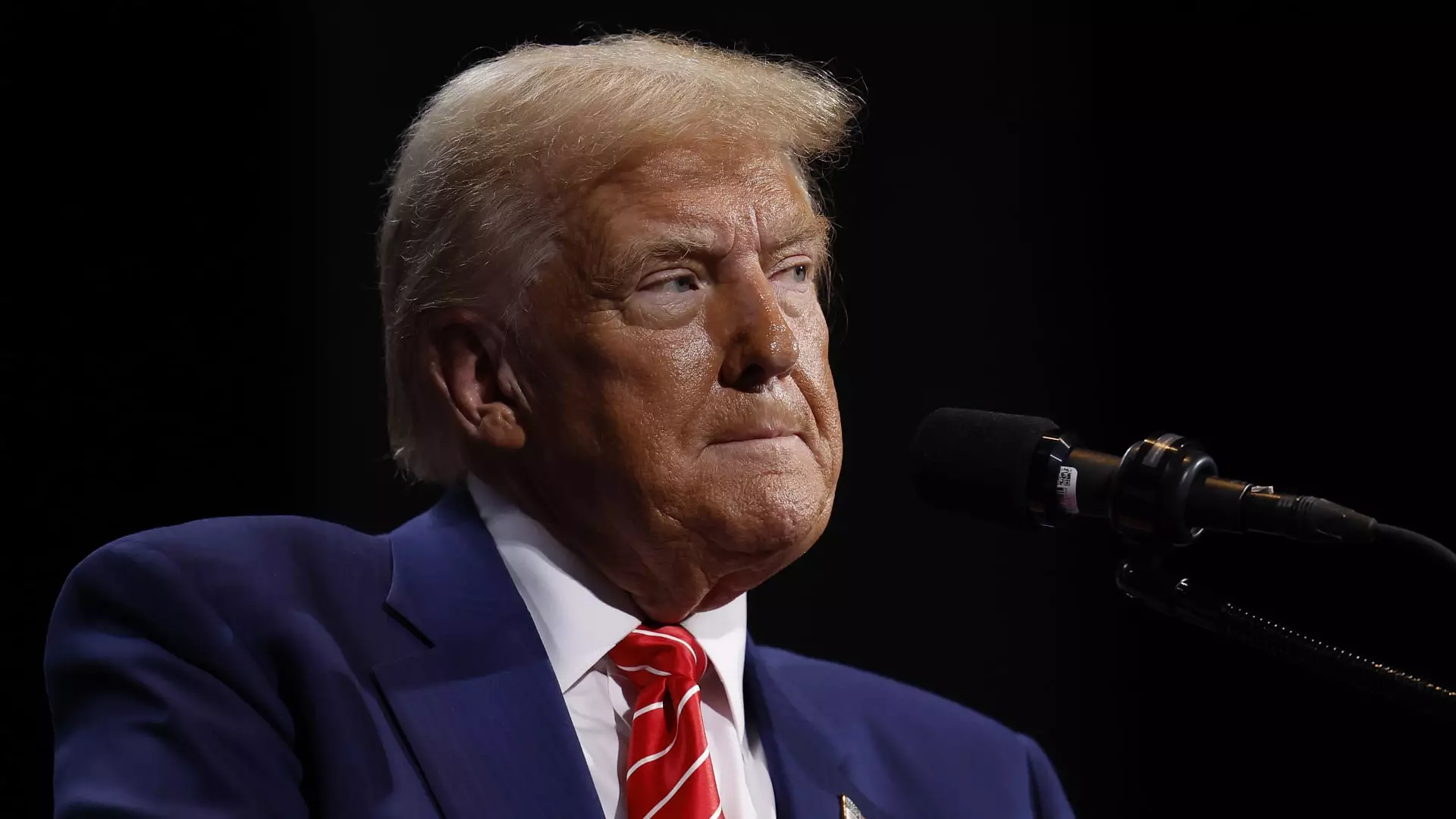The legal battles of the Exonerated Five, a group of five men wrongfully convicted as teenagers in the infamous Central Park jogger rape case of 1989, have taken a new turn. This time, the adversary is Donald Trump, who has made inflammatory and, according to the plaintiffs, entirely false statements about them. The lawsuit, filed in a federal court in Philadelphia, accuses Trump of defamation, claiming he asserted that the plaintiffs had confessed to murder, a statement that is unequivocally false. As this high-profile case unfolds, it illuminates broader societal issues of racial injustice, wrongful convictions, and the implications of public figures’ words in the courtroom of public opinion.
Central to the lawsuit is a September 10th debate where Trump made comments regarding the already notorious case. His remarks came in response to Democratic nominee Kamala Harris’s condemnation of his past actions, specifically a 1989 advertisement where Trump called for the return of the death penalty in New York City amid the Central Park case. The suit contends that Trump’s comments during the debate, which suggested that the Exonerated Five confessed to murder, are patently untrue. Rather, the five individuals—Yusef Salaam, Raymond Santana, Kevin Richardson, Antron McCray, and Korey Wise—were found innocent in 2002 after DNA evidence exonerated them.
These statements are more than mere political rhetoric; they are seen as part of a broader campaign to vilify a group of men whose lives were irrevocably altered by wrongful convictions. By claiming that they confessed to a crime they did not commit, Trump is accused of perpetuating harmful stereotypes and reviving their traumatic past.
The Plaintiffs are alleging three distinct legal causes of action: defamation, false light, and intentional infliction of emotional distress. This multi-faceted approach to their lawsuit serves to highlight both the personal harm inflicted by Trump’s statements and the broader implications of public discourse around race and justice.
This lawsuit is rooted in the trauma of their wrongful convictions, which saw these young men spending years in prison for a crime they did not commit. Their exoneration was a significant moment, but the scars left by their experiences run deep. Each man has had to navigate a complicated path toward reclaiming their identities and lives after such public degradation. The compounded trauma of their past, combined with Trump’s recent comments, revitalizes this painful history.
In a statement regarding the lawsuit, Trump’s campaign called the legal action a “frivolous” attempt by “desperate left-wing activists” to distract from what they characterize as Harris’s “failing campaign.” This response underscores the larger political battleground on which this legal issue is playing out. The accusations of manipulation and politicization of the judiciary highlight the intersection of race, justice, and politics in America today.
Additionally, Trump’s history with the Central Park Five case adds layers of complexity to the current narrative. From taking out full-page ads in New York newspapers to his recent debate comments, Trump has consistently made his opinions known, often with little regard for the implications of his statements on those he discusses. His past comments have sparked outrage and accusations of racism, reflecting a broader concern about how narratives surrounding race and crime continue to be framed in American society.
In dissecting this case, one must not overlook the human stories behind the legal actions. The Exonerated Five are not merely plaintiffs in a lawsuit—they are individuals who suffered immense injustice during their formative years. Their plight speaks to larger systemic issues in the American justice system, particularly as they relate to race and socioeconomic status. Each man’s story is a testament to resilience against overwhelming odds, making their pursuit of justice all the more poignant.
Their ongoing fight is not only about challenging Trump’s statements but also about raising awareness regarding wrongful convictions and advocating for accountability in the justice system. By reasserting their narrative and seeking reparations for the damage caused by their wrongful convictions and Trump’s defamatory comments, the Exonerated Five are demanding acknowledgment of their suffering and a commitment to justice.
The legal battle between the Exonerated Five and Donald Trump raises critical questions about accountability and the impact of powerful voices in politics. As they seek damages for the emotional distress caused by Trump’s lies, their fight symbolizes a broader struggle for justice and redemption. It calls upon society to reassess how narratives around race and criminality are constructed and to hold public figures accountable for their words. The outcome of this case may set a precedent for future actions concerning public defamation and the treatment of wrongful conviction claims, underscoring the need for justice in all its forms.


Leave a Reply